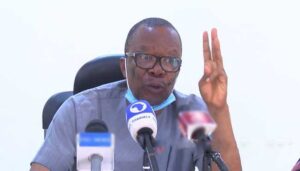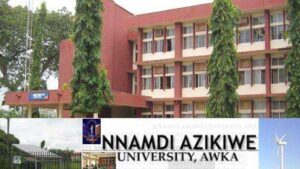
Mathematics curriculum designed to prepare pupils for ICT age — NERDC
The Nigerian Educational Research and Development Council (NERDC) said that the Primary three Mathematics Curriculum was designed to enable pupils to acquire mathematical literacy necessary to function in the Information and Communications Technology age.
Principal Research Officer, NERDC, Dr. Aminu Saidu stated this on Wednesday at the ongoing three-day material development workshop for primary schools 1 to 3 in Kano.
The workshop was organised by the Partnership for Learning for All in Nigeria (PLANE) programme to support Kaduna, Kano, and Jigawa States to develop materials to improve learning outcomes in primary schools.
Saidu added that the objective of the curriculum was also to expose children to understand and apply mathematical skills and concepts to perform in the changing world of technology.
This, according to him, will enable Nigerian children to take advantage of the numerous career opportunities provided by mathematics.
“It is also designed to prepare the pupils for further studies in mathematics and other related field relevant to the changing times, to provide solutions to societal problems.”
Material Development Officer, PLANE Kano, Mr Abubakar Umar said that mathematics competencies revolved around problem solving in number series, operations, geometric measurement and data collection and algebraic thinking.
Umar said that the goal of PLANE for primary three mathematics books was to expand learners’ understanding of mathematics, as they built on the skills acquired in primary 1 and primary 2.
He said that the learners should be able to count, write, and read up to 10,000 numbers and identify place value, order, add and subtract fractions.
“Primary 3 pupils are also expected to be able to understand multiplication rules and multiply numbers up to 12 multiplied by 12 and divide without reminder.
“They should also be able to find the perimeter, area, capacity, and weight of shapes, objects, and spaces, and identify unique properties of 2D and 3D shapes.”
PLANE is a seven-year United Kingdom Foreign, Commonwealth and Development Office-funded programme, designed to drive inclusive education programme in Nigeria.
PLANE works to deliver a more inclusive and effective education system that improves learning outcomes for pupils in pre-primary and primary years.
The programme focuses on improving basic education and tackling fundamental system constraints.
PLANE Team Lead for Kaduna State, Ms Diana Agabi, had explained that the development of a foundational literacy material package was one of the integral components of the PLANE programme.
Agabi said that the measure was in line with the delivery of the PLANE mandates of providing schools, teachers, and learners with accessible foundational skill packages across Kaduna, Kano, and Jigawa States.
According to her, the aim is to build a foundational literacy skill.



